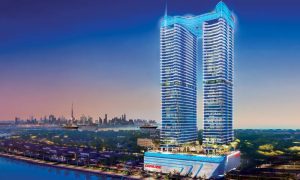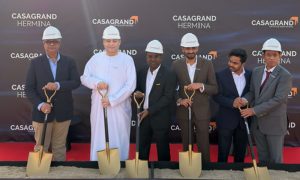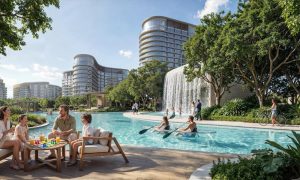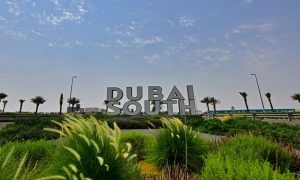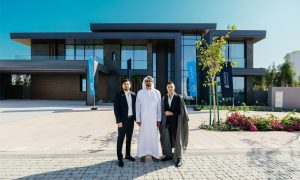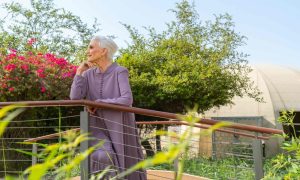Building the Kingdom’s Future
ROSHN’s Yassen Kattan on the giga developer’s key achievements, focus on sustainability, and its push into commercial, retail and leisure projects
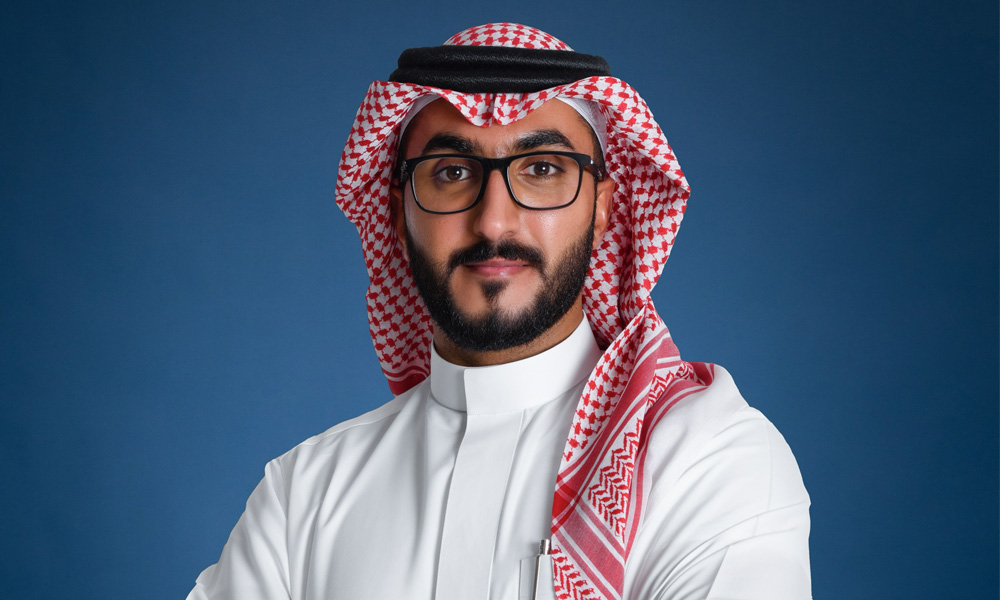
In H1 2016 Saudi Arabia’s Crown Prince Mohammed bin Salman announced the Saudi Vision 2030 (Vision 2030) program, an ambitious blueprint that aims to diversify Saudi Arabia’s economy, empower citizens, create a vibrant environment for both local and international investors, and establish the Kingdom as a global leader.
To ensure that the strategic goals and targets of Vision 2030 are achieved, thirteen programs called Vision Realisation Programs (VRPs) were established. These were presented by the Council of Economic and Development Affairs (CEDA) and include: a Quality of Life Program; Financial Sector Development Program; Housing Program; Fiscal Balance Program; National Transformation Program; Public Investment Fund Program; Privatisation Program; National Companies Promotion Program; National Industrial Development and Logistics Program; Strategic Partnerships Program; Hajj and Umrah Program; Human Capital Development Program and Saudi Character Enrichment Program.
In August 2020, ROSHN, a multi-asset class real estate developer and Public Investment Fund (PIF) company, was formed to serve as a key enabler of Vision 2030, through its active participation in the Housing Program, the Quality-of-Life Program, and the Public Investment Fund Program.
“ROSHN was founded to raise the bar and spearhead the development sector in the Kingdom. One of our key milestones since our founding is the completion of SEDRA Phase 1 two years ahead of schedule in 2022, delivering over 6,000 units,” says Yassen Kattan, Head of Strategy & Corporate Affairs at ROSHN.
“This achievement can be attributed to our use of many innovative technologies such as, GIS, Building Information Modeling (BIM), which optimises project timelines and minimises costs,” he notes.
More recently, the developer has expanded its project portfolio significantly and is currently developing: SEDRA and WAREFA in Riyadh; MARAFY and ALAROUS in Jeddah; ALMANAR in Makkah; ALDANAH in Dhahran, and two football stadiums: ROSHN Stadium in Riyadh and Aramco Stadium in Khobar.
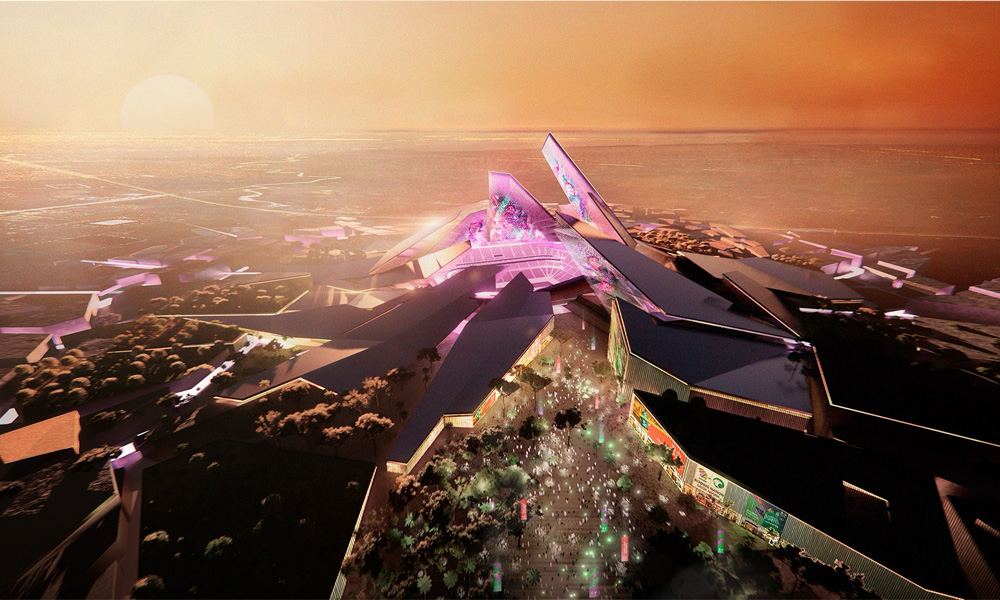
In terms of construction progress on SEDRA, Kattan states that four phases have been launched, with the total plan encompassing eight phases. “Phase 1A was completed in November 2022, two years ahead of schedule, while Phase 2, spanning a 3.6km site, will include 6,500 homes and is already sold out and close to completion.”
“Phase 3 will add over 3,000 residential units, accommodating more than 20,000 residents and is also already sold out. In August 2024 we began sales for Phase 4, with 1,251 homes put onto the market. We have already begun infrastructure works on site. All phases will include public & private schools, primary healthcare centers, mosques, district malls/retail, commercial mixed-use areas, and recreational facilities,” he notes.
Infrastructure work is progressing on WAREFA, which will feature 2,300 villas, townhouses, and duplexes and will be home to over 13,000 people. “WAREFA has earned the Mostadam Diamond certification, the highest recognition for sustainability in Saudi Arabia,” Kattan states.
On the ALAROUS project, Kattan explains that Phase 1 has been launched and infrastructure is over 75% complete. “We are on track to start handover to the residents by H2 2025. We will soon announce progress on ALDANAH and ALMANAR, in Dammam and Makkah respectively, with our groundbreaking on ALMANAR set to happen before the end of the year,” he notes.
Staying on track
To ensure it continues to deliver projects on schedule, the developer is leveraging a number of delivery methods. “Modular construction is one area which we are investing in, as we believe it has the potential to help us meet our target of building 400,000 homes efficiently and at a high level of quality,” Kattan points out.
Asked about construction and supply chain challenges the company has faced in the last 12 months, and how it has dealt with those issues, Kattan responds, “It’s not a secret that we are all looking to deal with a national scope that is unprecedented in its scale and vision. Only in September this year, Bloomberg estimated that Saudi Arabia’s Vision 2030 projects have reached US $1.3tn in value. What we are mindful of is working in step with our contractors and suppliers to ensure that they are aware of our scopes and timelines to ensure supply chain security. The earlier we engage with our suppliers, the better the ability they have to be able to deliver on time.”
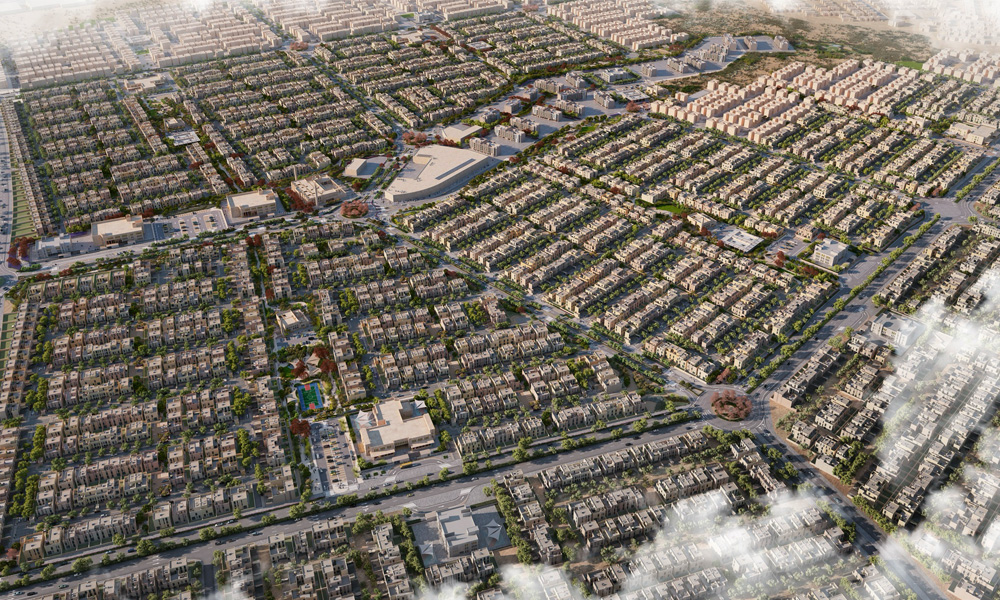
Discussing how ROSHN is working to build and stabilise its supply chain to ensure its projects remain on track, Kattan explains, “First, we’ve built up our relations with our supply chain. We launched our first supply chain forum in January of this year, which was attended by hundreds of our partners, and we held our second at Cityscape in November. Having a clear idea of what we want to do and engaging our partners, be it construction companies, technology providers, or suppliers is key to our shared success.”
“Second, we are looking at technology to optimise how we build. An example of this is how we use precast construction in conjunction with BIM to improve efficiency and sustainability in our projects. Another example is how we use digital twin technology to simulate and analyse interactions between various project elements, enabling better planning and decision-making. This can lead to more efficient resource allocation and potentially mitigate the impact of supply chain disruptions.”
He adds, “These investments in materials, strategic partnerships, and technology contribute significantly to building a more robust and stable supply chain for ROSHN. By improving efficiency, reducing overreliance on manual labor, and strengthening local sourcing, we are well positioned to mitigate potential supply chain risks and maintain the timely delivery of our projects.”
Taking into account the importance of ROSHN’s projects and their sheer scale, it’s vital that ROSHN has up-to-date construction data, which in-turn will enable it to stay ahead of potential issues. As a result, technology plays a key part in bridging communications between the company and its network of consultants, contractors and suppliers.
“ROSHN, as a giga real estate developer, has implemented sophisticated technological solutions to track construction progress, manage issues, and facilitate communication across its vast network of stakeholders.”
The firm has implemented a sophisticated Project Management Information System (PMIS), says Kattan. “ROSHN has adopted PMWeb as its comprehensive web-based PMIS. This platform serves as a centralised, single-source-of-truth for all project-related information, enabling real-time tracking of project progress; risk management; streamlined stakeholder communications, and informed decision-making based on up-to-date data. The PMWeb system allows ROSHN to manage projects throughout their entire lifecycle, from planning and design to execution and closeout,” Kattan says.
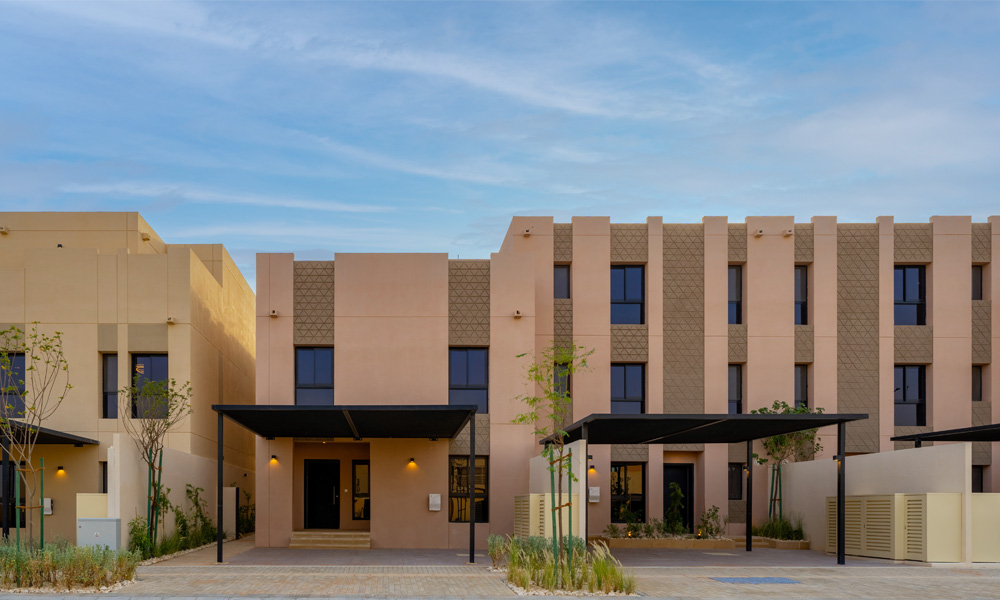
In addition, PMWeb has helped ROSHN standardise and streamline its procedures, processes, and templates for each stage gate of project development. This standardisation ensures consistency across all projects and improves overall efficiency, he adds.
The giga developer has also digitalised its workflows, with Kattan explaining, “ROSHN has digitally transformed its RACI (Responsible, Accountable, Consulted, Informed) matrix into the PMWeb system. This digital workflow, combined with electronic approvals, enables ROSHN to effectively manage, track, and control its extensive portfolio.”
The firm relies extensively on advanced business intelligence and reporting; the system provides advanced live dashboards & GeoSpatial reports, which are crucial for management decisions. These tools offer visual representations of project data, making it easier for stakeholders to understand and act on complex information, Kattan states.
“The adoption of PMWeb has enabled ROSHN to implement an agile portfolio management approach. This allows for effective management of multiple projects across various regions of the country while improving team collaboration. By leveraging these technological solutions, ROSHN is able to effectively manage its massive portfolio of projects, ensure quality and sustainability, and maintain clear communication channels with its network of consultants and contractors. This tech-driven approach is crucial for a developer of ROSHN’s scale, especially given its ambitious goals and the complexity of its projects across Saudi Arabia,” he explains.
Sustainability & talent development
Sustainable development is a key component of Vision 2030 and as one of the Kingdom’s key enablers of the Vision 2030 program, ROSHN is committed to employing sustainable development practices across its construction supply chain, through its Sustainable Development Management System (SDMS).
“The SDMS governs all phases of development, ensuring that sustainability principles are integrated from initial design to final construction and beyond. ROSHN’s sustainability strategy focuses on minimising carbon emissions, conserving natural resources, and promoting a circular economy,” Kattan shares.

Some of ROSHN’s goals and key achievement in terms of sustainability include:
- Reduced embodied carbon emissions across all projects. “We are working to reduce embodied carbon emissions across our projects, through the use of cutting-edge materials, such as Glass Fibre-Reinforced Polymer (GFRP) rebars, to achieve this reduction”
- Diverting construction waste from landfills through recycling and reuse. “ROSHN prioritises sourcing materials locally and reusing construction materials whenever possible to minimise waste”
- Irrigation of public green spaces with treated sewage effluent (TSE) water. “This practice eliminates reliance on potable water for irrigation across all of its developments”
- Implementation of a comprehensive waste management strategy. “This strategy includes the usage of segregation at source, to reduce waste to landfill and improve recycling rates”
- Employing BIM technology. “ROSHN uses BIM across all its projects to enhance planning accuracy and integrate energy-efficient designs from the outset”
- Mostadam Diamond certification for WAREFA. “The Mostadam certification is a comprehensive and dynamic sustainability rating and certification system tailored to the challenges of sustainable building in Saudi Arabia”
He also points out that, “ROSHN became the first company in the India, Middle East, Turkiye, and Africa (IMETA) region to develop a management system for sustainable development in communities in compliance with ISO 37101. This management system fosters smartness and resilience in communities, while improving their contribution to sustainable development.”
“ROSHN’s commitment to sustainability is evident in its comprehensive approach to reducing environmental impact and promoting sustainable practices throughout its construction supply chain. By setting ambitious goals and implementing innovative initiatives, ROSHN is creating communities that are environmentally responsible and support the well-being of residents.”
With regards to talent development and the transmission of knowledge, ROSHN is committed to its employees. Kattan remarks, “It may sound cliched but our people are our greatest asset. We have a range of programs that we have rolled out for the benefit of our people and their development, including the Himam Graduate Program and the RETURN Program.”
“The Himam Graduate Program is designed to nurture young talent and provide them with the skills and experience needed to excel in their careers at ROSHN and offers mentorship and on-the-job training. The program pairs participants with mentors from ROSHN’s leadership team, offering opportunities for junior employees to learn directly from experienced professionals. This mentorship structure likely facilitates the transfer of knowledge and expertise from senior employees to those newer to the company and industry.”
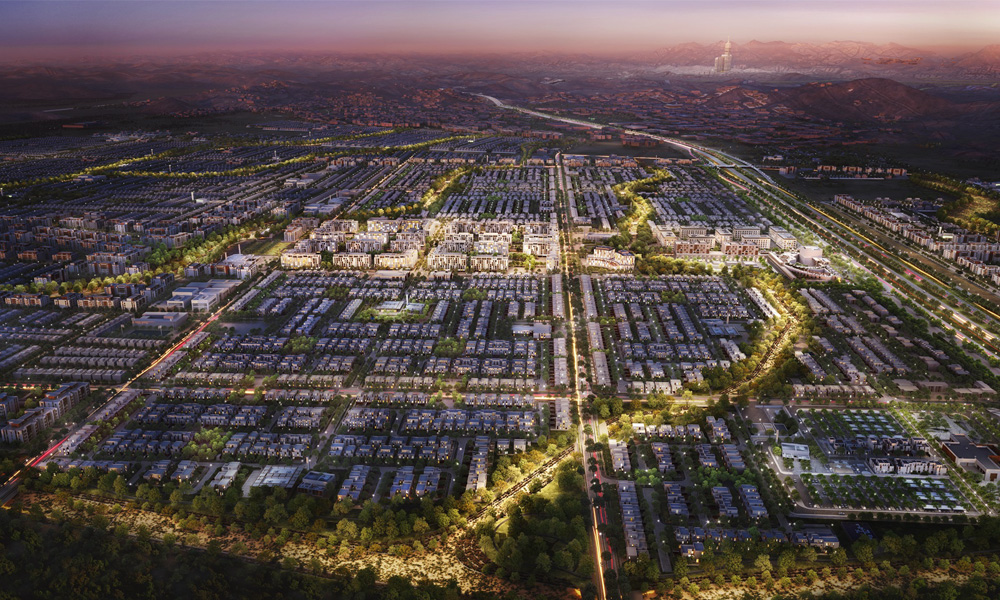
“The Himam program also includes on-the-job training placements within different departments, allowing participants to apply their academic knowledge and learn from experienced colleagues in practical settings,” explains Kattan.
Speaking about the RETURN Program, Kattan highlights, “This program supports women re-entering the workforce after career breaks. While it primarily focuses on empowering women, it also likely facilitates knowledge transfer between experienced employees returning to ROSHN and junior colleagues.”
“The RETURN program includes mentorship opportunities, which provides avenues for knowledge sharing between more senior employees and those returning after career breaks. It also comprises internal training programs – ROSHN conducts internal training programs and workshops where senior employees can share their expertise with junior colleagues.”
“The program also features knowledge sharing platforms. ROSHN uses internal platforms or knowledge management systems to facilitate the sharing of best practices, lessons learned, and other valuable information,” he says.
Expansion into new real estate segments
Since it was founded in late 2020, ROSHN has expanded from community projects into commercial, retail and leisure projects.
Asked about the vision behind the move and how it will affect projects that are currently underway, Kattan replies, “ROSHN’s expansion into mixed-use developments is a strategic move that aligns with its vision of creating integrated, human-centric developments that support Saudi Arabia’s economic diversification, sustainability and quality of life goals. This expansion is transforming ROSHN’s projects into thriving urban centres that offer a diverse range of assets and experiences.”
Discussing whether existing masterplans will be expanded to include commercial, retail and leisure elements, Kattan notes, “We have always designed our masterplans to include amenities such as schools, shops, restaurants, and healthcare facilities. What we want to do is to build destinations that offer anything a resident may need, such as SEDRA which has an array of shopping and commercial facilities next door in ROSHN Front. Given we have a land bank of 200m sqm, we are fortunate to have the space to do this. And our company’s leadership has set out a vision that we are looking to achieve when it comes to building communities that are set to become destinations in their own right.”
The giga developer purchased Riyadh Front at the end of 2022, which marked its shift into the retail and commercial segments. “Since that time, we have grown our footprint in both. Today, ROSHN Front welcomes up to ten million visitors a year. On the project side, MARAFY will offer 11.8m sqm of diverse, vibrant, and integrated districts connected by an 11km canal, the first of its kind in Saudi Arabia. We’ve moved into sports with the announcement of the Saudi Sports for All Federation Dome, a state-of-the-art sports facility that is part of ROSHN’s broader partnership with the Saudi Sports for All Federation.”
“The Saudi Sports for All Federation Dome will provide year-round, all-weather access to a range of sports activities. In July of this year we announced our involvement in two major stadiums, ROSHN Stadium and Aramco Stadium, which are part of the Kingdom’s FIFA 2034 World Cup bid. More is to come,” outlines Kattan.
Pressed about the giga developer’s strategy to ensure that traditionally resource intensive retail and leisure projects would be managed sustainably, Kattan emphasises that the sustainability is a core principal, and thus the developer will focus on minimising resource consumption and environmental impact, while ensuring the maximum level of quality.
“With all of our projects we run the municipal services, allowing us to manage resources. We are also working with vendors to implement smart building technologies, reducing energy and water usage throughout our projects.”
“ROSHN Front is designed to be as efficient as possible in terms of air conditioning, with smaller walkways that are chilled. ROSHN Front is also home to the country’s first fast charging station for electric vehicles. We aim to build for the future with whatever we do, and that includes operational and resource efficiency,” he concludes.
